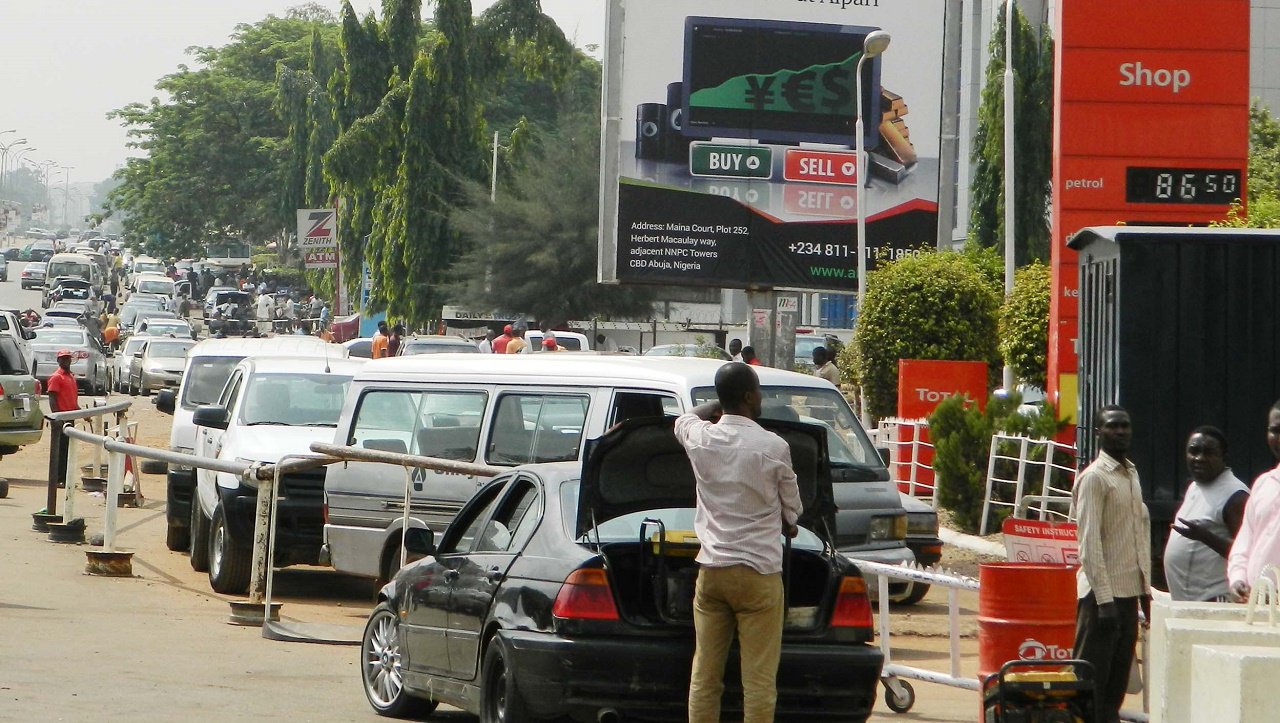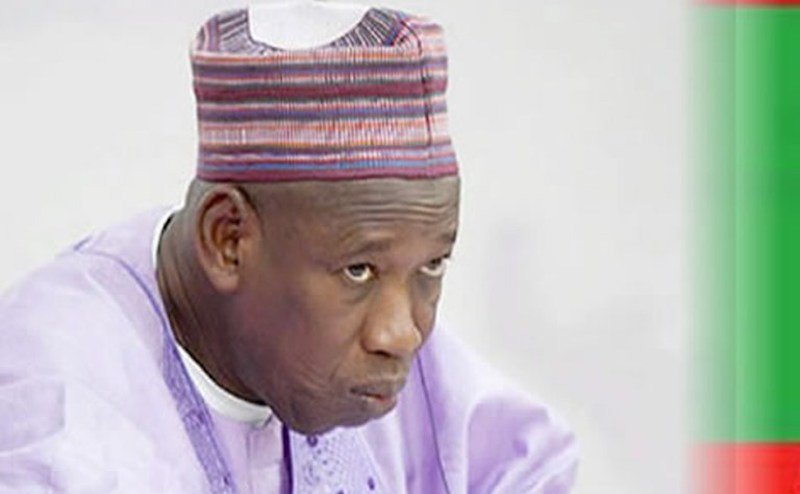By Eric Elezuo
Nigerians, for the umpteenth time in the life of the administration of President Muhammadu Buhari, have come under the excruciating pains of unending fuel scarcity, with the president yet to address the issue even as government officials continually make promises that have not seen the light of the day. Like a curse, the last parts of the year have remained an albatross when it comes to fuel scarcity as it has become a norm that Christmas seasons and scarcity of fuel products have become synonymous. But the life of the present administration has ensured that scarcity is not only a December issue, but an all year round crisis.
Rising from the delay of ministerial appointment six months after he assumed office in May 2015, Buhari made himself the Minister of Petroleum, with Mr. Ibe Kachikwu as the Minister of State for Petroleum. Nigerians have rejoiced at the prospect, believing that whatever crises witnessed in the sector over the years have come to an end. But that was not to be. For the three years and counting, Kachikwu held sway as Deputy Minister in the oil and gas industry, he grappled unsuccessfully to keep in check the lingering issue, even as Mr President maintained an undignified silence over the matter.
In January 2016, the country launched into a dire fuel crisis, which set the stage for the subsequent after effects still experienced till date. The crisis which lasted for about three months, was without the voice of Buhari, who was battling to save his life in a London hospital.
“I share the pains of Nigerians, I feel that pain everyday when I walk the streets: on Easter day, I was in Lagos monitoring fuel distribution and the depots, I had given 24 hours attention to the problems.
“I have continued to work with one sole purpose, which is that every problem must have a solution and I think that is the reason I was picked.
“I do apologise for the comment that I made jocularly with my friends in the press about being a magician and it offended Nigerians; it was not meant to be, it was a side jocular issue. I did go on to explain what needed to be done, I did not know that it would create the kind of hyperbole (exaggeration) that it did.
“Let me first admit that I am not a typically experienced politician, I am a technocrat: I come to work.” Kachikwu said while defending his position as the scarcity lasted.
In December 2017, another scarcity hit the nation spiraling deep into 2018. This was how it continued until Kachikwu was removed in August 2019, and replaced by former Bayelsa State governor, Timipre Sylva. However, the trend has remained the same, and growing worse. Yet, Buhari’s undignified silence remaining deafening.
Worse it in the scheme of things is the Premium Motor Spirit, popularly called petrol. Its scarcity has grown worse across the country as massive queues were witnessed in Abuja, Lagos, Port Harcourt, Calabar, Warri, Nasarawa, Minna, among other places, according to The Punch reports.
A typical excuse by oil marketers remains that dealers could hardly access the product from the only two depots that were dispensing the commodity in Lagos State.
The few filling stations, particularly those of independent marketers, that dispensed the commodity sold it at between N250/litre and N300/litre, depending on area of purchase.
Oil marketers told The Punch that over 1,000 tickets, belonging to marketers which had paid for products, remained unattended to, at the few depots that dispense the commodity in Lagos. It was gathered that the tickets, which were for over 1,000 tankers, had continued to pile up due to the pressure on the two depots, namely MRS and Pinnacle.
It was also gathered that the cost of petrol could have been increased quietly by the Federal Government, as stations that used to sell the approved price of N179 – N180/litre had raised their prices to between N185 – N190/litre. The government has however, denied increasing prices.
While Lagos residents still managing to buy at 300 naira per litre, most residents of other parts of the country, notably the Southeastern parts, have lamented the total scarcity of the product, saying that when seen, a customer must have to part with as much as 400 to 450 naira for one litre.
Most motorists have packed their vehicles for want of the product while commercial drivers, who managed to still ply the roads, are charging exorbitantly to make up for the high cost of the fuel purchase. As a result, some commuters, especially in Lagos and major metropolitan cities have resolved to trekking to their destinations.
In the same vein, market women and men have hiked the price of their goods to reflect the huge cost incurred while transporting the said goods from one point to another. Even service providers, who have to shop for the high priced commodities have also increased the prices of your services to stay afloat of the situation. The situation has turned to a round robin affair with cost of both goods and services hitting roof top.
“Petrol has remained the pivot on which the economy of the nation revolves. As a result, whatever happens to the price or availability of the petroleum products with special emphasis to petrol, will sure have a reverberating effect on every other sector. It is just the way we have succeeded in wiring the country,” a motorists on a petrol queue told The Boss
Also commenting on the issue, the Secretary, Independent Petroleum Marketers Association of Nigeria, (IPMAN) Abuja-Suleja, Mohammed Shuaibu, told The Punch that the concerns in the downstream sector would continue to linger as long as the government remained the sole importer of petrol into Nigeria.
“The Federal Government, through NNPC, is the only one importing this product and it is subsidising it. And they don’t have the facility to store the product.
“Some time ago we complained about this because when they store in private depots, the price is hiked and some of the depots continue to exploit the masses arbitrarily.
“However, as it is now, the government is bringing in products. But the issue now is that virtually all the depots that belong to major marketers in Apapa axis of Lagos are empty. So there is now pressure on MRS and Pinnacle depots where NNPC drop products.
“So, there are over 1,000 tickets of marketers who have paid to have their trucks loaded, but we don’t know what is happening. Today they will tell you that they are upgrading the system, tomorrow you will hear that the system did not capture.
“You know that it takes much time to transport this product from the South to the North. Some trucks spend one month, especially when they have problems on the road, others spend two to three weeks,” he said.
He lamented that the Buhari-led Federal Government has so far not done anything about the situation, which must be done fast, and the situation is deteriorating. He also added that pipeline vandalism, depot upgrade among other issues reasons the reasons other depots in Apapa and in other locations not selling products.
He said, “Last time we complained that some depots were exploiting us, and the depots argued that the cost of moving products from one end of their facility to another had Increased, as well as other issues. So we can’t tell whether that is another reason why NNPC stopped supplying some of these depots.
“Things were not worse like this before. As I’m talking to you now, some of our tickets have been there for close to a month. I did payment since but I can’t load. And the story is the same across their 21 depots. We can’t load.”
Meanwhile, Shuabu stated that unconfirmed information on the official pump price of PMS that filtered in on Thursday evening was that the government had quietly raised the cost of petrol.
“I cannot confirm it yet, but we are hearing that they have quietly increased the pump price of petrol, because major marketers in Lagos who used to sell at N179 – N180/litre, are now selling at N185 – N190/litre,” he stated.
The Public Relations Officer, IPMAN, Chief Ukadike Chinedu, blamed the scarcity on the changes being done by NNPC in terms of payment for products by marketers.
“NNPC has moved independent marketers from PPMC Marketers Express to the NNPC Retail portal. That NNPC Retail portal is where marketers will be able to buy their products. However, they told us that the portal is in place now.
“Another concern is that they (NNPC) are also having an issue with the remittance, which, according to them, has been resolved. But the impact of these issues will definitely be felt and it will take some time to clear.
“Marketers are calling on NNPC to supply products to some of the depots where independent marketers can access them since most NNPC depots are not functional because of pipeline vandalism,” he said.
The government has insisted on removing subsidy by May even as the signing of the Petroleum Industry Bill in August 2021 has not helped to ease petroleum crises over the years. Nigerians await to see if the removal of the subsidy or emergence of a new president in May will bring to an end the perennial fuel issues.
But before then, the problems of Nigerians continue even as feelers reveal that an early resolution of the problem is a mirage as supply hitches may not end any time soon. The Punch quoted a senior official in the Ministry of Petroleum Resources as saying that the fuel scarcity might get worse in the days and weeks to come as there were many issues affecting the smooth supply of the product across the country including the inability of the NNPC Limited to import sufficient volume of Premium Motor Spirit (petrol).
The source also explained that the inability of the country to produce enough crude oil to meet its Organisation of Petroleum Export Countries’ quota was another problem, noting that insecurity and crude theft had significantly affected the production capacity.
He added, “Another issue is the failure of the crude swap for refined products deal that the NNPCL had with major international oil firms and traders. The inability of the NNPCL to meet its own side of the deal by supplying the required quantity of crude has frustrated the arrangement.
“While Nigeria has been taking refined products from the partners, it has not been able to supply the crude equivalent and the international firms and traders have stopped shipping products to the country.”
Oil marketers has also alluded to the problems in the downstream sector and predicted that the current scarcity would not abate until the government comes out with a clear position on subsidy removal, full deregulation and price determination.
It still remains to be seen when the fuel issue will be settled.

 News6 years ago
News6 years ago
 Featured6 years ago
Featured6 years ago
 Boss Picks6 years ago
Boss Picks6 years ago
 Headline6 years ago
Headline6 years ago
 Headline6 years ago
Headline6 years ago
 Headline5 years ago
Headline5 years ago
 Headline6 years ago
Headline6 years ago
 Headline6 years ago
Headline6 years ago













